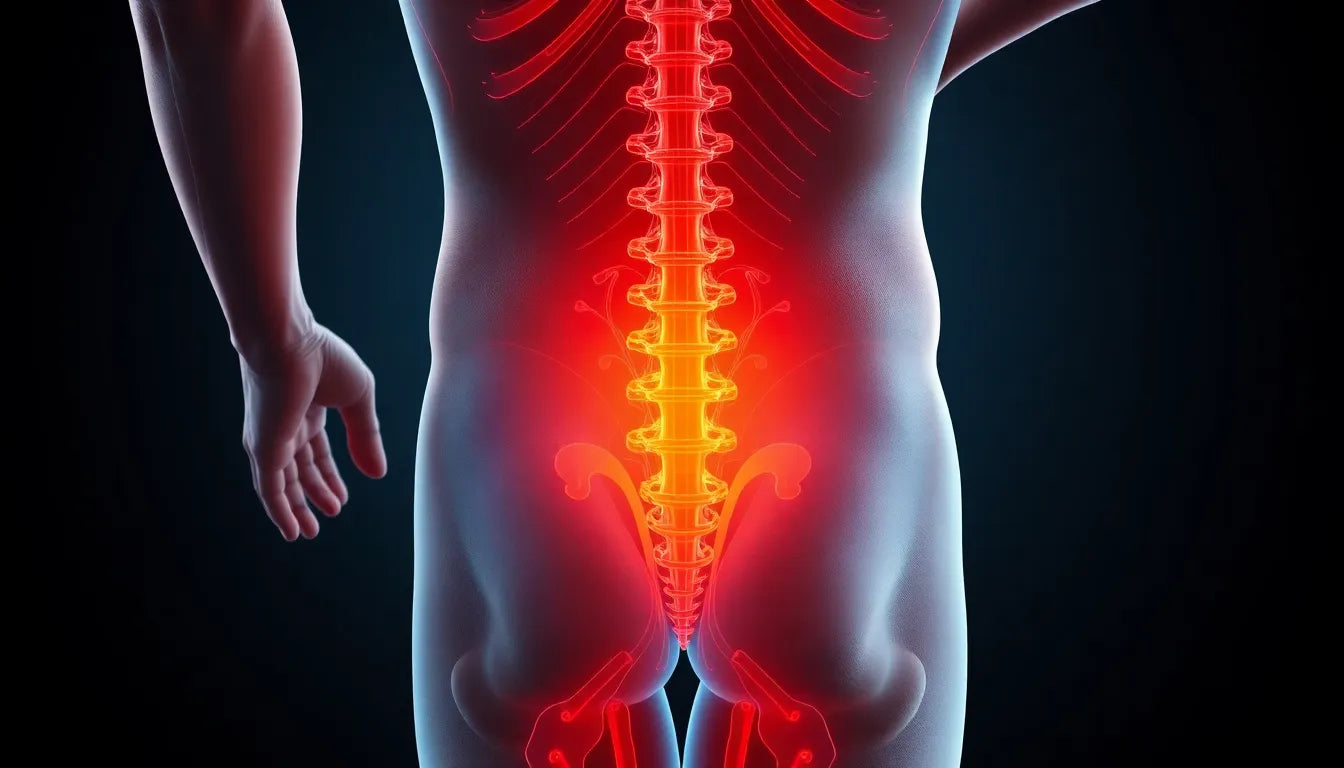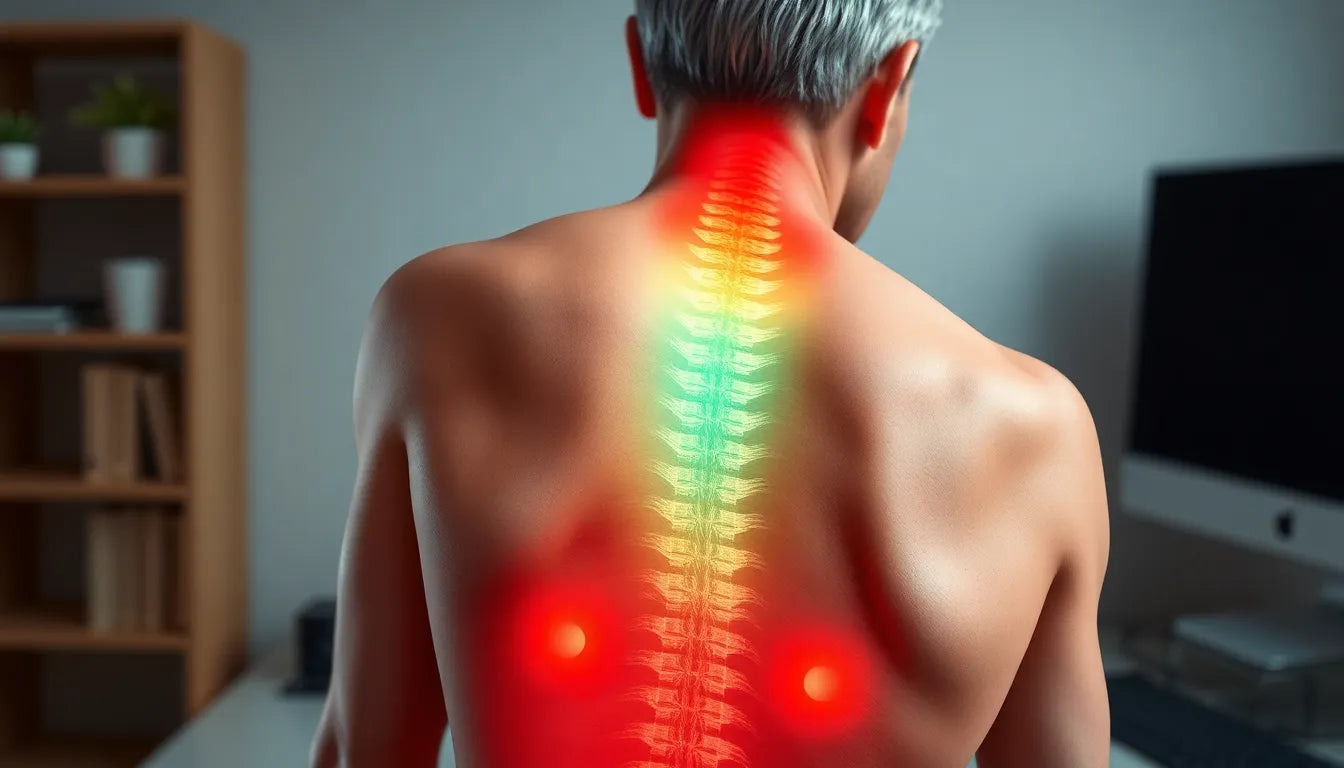Experiencing back pain in the morning is a common issue that many people face, impacting their daily routines and overall quality of life. The prevalence of this problem is evident as numerous individuals frequently search for solutions to "ondt i ryggen om morgenen" on Google. This widespread concern highlights the need for understanding the underlying causes and potential remedies to alleviate discomfort and improve well-being.
understanding the causes of morning back pain
Morning back pain can stem from various factors, each contributing differently to the discomfort experienced upon waking. One of the primary culprits is poor sleeping positions. When the body is not adequately supported during sleep, it can lead to undue strain on the back muscles and spine, resulting in morning stiffness and pain.
Another significant factor is inadequate mattress support. A mattress that is too soft or too firm can fail to provide the necessary support for the spine, leading to misalignment and discomfort. Over time, this can exacerbate back pain, making mornings particularly challenging.
Lack of physical activity also plays a crucial role in the development of morning back pain. Sedentary lifestyles contribute to muscle tension and weakness, which can manifest as pain and stiffness after a night's rest. Engaging in regular exercise and stretching can help mitigate these effects, promoting better spinal health.
Inflammatory conditions such as arthritis or spinal issues are also potential causes of morning back pain. These conditions can lead to inflammation and stiffness in the joints and spine, particularly noticeable after periods of inactivity, such as sleep.
Lastly, circulatory problems can contribute to morning stiffness. Poor circulation during the night can result in blood pooling in certain areas, leading to stiffness and discomfort upon waking. Improving circulation through lifestyle changes and targeted exercises can help alleviate these symptoms.
the importance of addressing morning back pain
Addressing morning back pain is crucial for maintaining a high quality of life and preventing long-term health issues. Persistent pain can interfere with daily activities, reducing productivity and overall enjoyment of life. Moreover, ignoring these symptoms can lead to more severe conditions over time, necessitating more intensive treatments.
By identifying and addressing the root causes of morning back pain, individuals can take proactive steps towards improving their health and well-being. This not only enhances daily comfort but also reduces the risk of developing chronic back issues in the future. Implementing changes such as adjusting sleeping positions, investing in a supportive mattress, and incorporating regular physical activity can significantly impact one's overall health and quality of life.
exploring the root causes of morning back pain
Understanding the root causes of morning back pain is essential to finding effective solutions. One of the most significant contributors is the sleeping position. Certain positions can place undue stress on the spine and surrounding muscles, leading to discomfort upon waking. For instance, sleeping on your stomach can cause the neck and spine to be misaligned, resulting in strain. To alleviate this, consider sleeping on your back with a pillow under your knees or on your side with a pillow between your knees. These positions help maintain the natural curve of the spine and reduce tension.
the role of mattress and pillow choice
The choice of mattress and pillow plays a crucial role in supporting the spine during sleep. A mattress that is too soft may not provide adequate support, leading to spinal misalignment, while a mattress that is too firm can create pressure points. The ideal mattress should support the natural curvature of your spine, promoting a restful sleep. Similarly, the right pillow should keep your neck aligned with the rest of your spine. Considerations such as body weight, sleeping position, and personal comfort preferences are essential when selecting these sleep essentials.
impact of physical inactivity
Physical inactivity is another key factor contributing to morning back pain. A sedentary lifestyle can lead to muscle stiffness and weakness, particularly in the core muscles that support the spine. Regular physical activity, including stretching and strengthening exercises, can help maintain muscle flexibility and strength, reducing the likelihood of back pain. Activities like yoga and pilates are particularly beneficial as they focus on core stability and overall body alignment.
inflammatory and rheumatic conditions
Inflammatory and rheumatic conditions, such as arthritis, spinal stenosis, and disc herniation, can also cause morning back pain. These conditions often lead to inflammation and stiffness, especially after periods of rest. Symptoms may include persistent pain, swelling, and reduced mobility. It's important to monitor these symptoms and seek medical advice if they persist, as early intervention can prevent further complications.
circulatory issues and morning stiffness
Circulatory issues can contribute to morning stiffness and discomfort. During the night, blood may pool in certain areas, such as the pelvis, due to prolonged inactivity. This can lead to stiffness and pain upon waking. Improving circulation through lifestyle changes, such as regular exercise and staying hydrated, can help alleviate these symptoms. Techniques like elevating the legs during sleep can also promote better blood flow.
practical solutions and lifestyle adjustments
Addressing morning back pain often involves a combination of lifestyle adjustments and practical solutions. Incorporating regular exercise into your routine, focusing on activities that strengthen the core, can significantly improve spinal health. Maintaining a healthy diet and weight is also crucial, as excess weight can place additional strain on the back. Avoiding smoking and excessive alcohol consumption can further enhance overall health and reduce inflammation.
For immediate relief, home remedies such as heat and cold therapy can be effective. Applying a warm compress or heating pad can help relax tense muscles, while cold therapy can reduce inflammation. Additionally, using ergonomic products, such as lumbar support cushions or adjustable desks, can support proper posture and alleviate strain during daily activities.

Lumbar support belt
Provides adjustable lower back support for relief and stabilisation in daily activities.

Women's Posture Shirt™ - Black
Stimulates muscles and improves posture—ideal for work, exercise, and daily relief.
By understanding and addressing the various causes of morning back pain, individuals can take proactive steps towards improving their quality of life. Implementing these practical solutions can lead to more restful sleep and a pain-free start to the day.
professional treatments and when to seek help
While lifestyle changes and home remedies can significantly alleviate morning back pain, there are instances when professional intervention becomes necessary. Persistent or severe pain that does not improve with self-care measures should be evaluated by a healthcare professional. Early diagnosis can prevent further complications and lead to more effective treatment.
Physiotherapy is a common approach for treating back pain, focusing on exercises that improve flexibility, strength, and posture. A physiotherapist can tailor a program to your specific needs, addressing underlying issues contributing to your pain.
Chiropractic care is another option that involves spinal adjustments to improve alignment and reduce pain. Many people find relief through regular chiropractic sessions, which can help restore mobility and alleviate discomfort.
In more severe cases, medical interventions may be required. These can include medications to reduce inflammation and manage pain, or surgical options for conditions like herniated discs or spinal stenosis. Consulting with a specialist will provide insights into the most appropriate treatment plan for your condition.
commercial recommendations for back pain relief
In addition to professional treatments, certain products can aid in alleviating back pain. Ergonomic aids, such as lumbar support pillows and adjustable desks, can help maintain proper posture during daily activities. Specialized mattresses and pillows designed to support spinal alignment can also make a significant difference in reducing morning back pain.
When considering commercial products, it's important to choose those that suit your specific needs and preferences. Testing different options and seeking recommendations from healthcare professionals can guide you in selecting the best products for your situation.
visual aids and checklists
To assist in choosing the right mattress and pillow, consider using a checklist. Evaluate factors such as firmness, material, and your preferred sleeping position. A diagram illustrating optimal sleeping positions can also be helpful, providing a visual reference for maintaining proper spinal alignment during sleep.
frequently asked questions
What are the most common causes of morning back pain?
The most common causes include poor sleeping positions, inadequate mattress support, physical inactivity, inflammatory conditions, and circulatory issues. Each of these factors can contribute to discomfort and stiffness upon waking.
How can I improve my sleeping position to reduce back pain?
Adjusting your sleeping position can significantly reduce back pain. Sleeping on your back with a pillow under your knees or on your side with a pillow between your knees helps maintain the natural curve of the spine and reduces tension.
When should I see a doctor for my back pain?
If your back pain is persistent, severe, or accompanied by other symptoms such as numbness or weakness, it's important to seek medical advice. Early intervention can prevent further complications and lead to more effective treatment.
What exercises can help with morning back pain?
Incorporating exercises that focus on core strength and flexibility can help alleviate back pain. Activities such as yoga and pilates are particularly beneficial, as they promote overall body alignment and muscle strength.
Are there specific products that can help with back pain?
Yes, ergonomic products such as lumbar support cushions, adjustable desks, and specialized mattresses can support proper posture and alleviate strain. Choosing the right products tailored to your needs can make a significant difference in managing back pain.


















